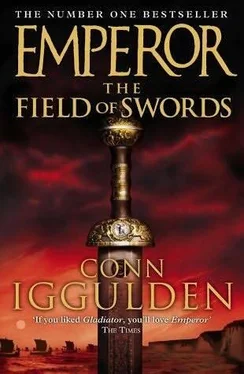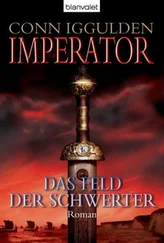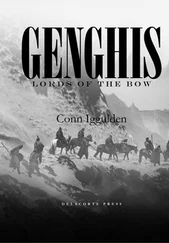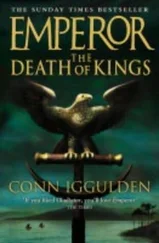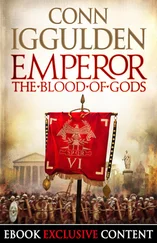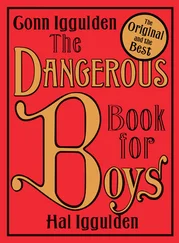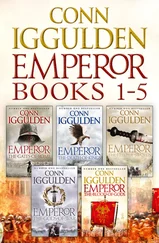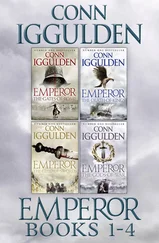He ignored Mark Antony’s wince at his words.
“Now let us prepare the marching order. Though I can hope for peace, we must prepare for war.”
After the rush to meet and turn the Helvetii, the more formal march along the new road was almost restful for the legion veterans. Though the days were still heavy with heat, the trees had begun their turn, already tinged with a thousand shades of red and brown. Crows lifted from the forests as they passed through, their voices harsh with warning. On the empty plains, it was easy for the legionaries to imagine they were the only men for a thousand miles.
Julius kept the Tenth and extraordinarii at the front. The Aedui riders were given into the care of Domitius and Octavian and began to learn the discipline Julius required of his allies. Though he had been grateful to Mhorbaine for the added force, he had made it clear that they had to learn to follow orders and structure themselves in the Roman fashion. The extraordinarii had a busy time with the Gaulish riders, who seemed individualists to a man and not at all used to any form of organized attack.
The great war machines accompanied the march, strapped down and safe while they were on the move, but with their expert teams close to them. Each of the heavy ballistae had a personal name cut into the great blocks of beech, and each legion preferred to use its own, loyally certain that they could throw farther and more accurately than any of the others. The scorpion bows looked little more than cartloads of spars and iron before assembly. The heavy arms took three men to reset after each shot, but the bolt could punch through a horse and kill another behind it. They were valued weapons and the legionaries who came close would often reach out to touch the metal for luck.
The six legions stretched for ten miles on the road to the Helvetii plain, though that halved as Julius ordered a wider formation over open ground. As near as he was to Aedui land, he did not yet fear an attack, but he was painfully aware of the exposed column and the vast array of equipment and baggage that accompanied them. There were weak links in the chain from the province, but at the first sign of danger, the legions could re-form into wide protective squares, proof against anything he had seen thus far in Gaul.
Julius knew he had the men and generals he needed. If he failed, the disgrace would be his alone.
Mhorbaine had resisted the temptation to join them against his enemy. Though he had been torn, no leader of the Aedui could spend so long away from his people without usurpers rushing to take his place.
Julius had bidden him farewell from the very edge of the Roman province, with the shining legions in a vast line behind him, standing with the tension of hunting hounds.
Mhorbaine had cast his eyes over the still ranks waiting for their general and shaken his head at their discipline. His own warriors would have been milling around aimlessly before a march, and he found the Romans both depressing and frightening in comparison. As Julius turned away from him, Mhorbaine had called out the question he’d been turning over in his mind ever since he saw the strength of the force being sent against Ariovistus.
“Who guards your land while you are gone?” he called.
Julius turned back to him, his dark eyes boring into the Gaul. “You do, Mhorbaine. But there will be no need for guards.”
Mhorbaine had looked askance at the Roman general in his polished armor. “There are many tribes who would be willing to take advantage of your absence, my friend. The Helvetii may return, and the Allobroges would steal anything they can lift.”
He watched as Julius pulled his full-face helmet over his head, the iron features making him look like a statue come to life. His breastplate shone with oil and his brown arms were strong and scarred with a pattern of white lines against the darker skin.
“They know we will return, Mhorbaine,” Julius had said, smiling beneath the mask.
After the first mile, the iron helmet had come off, when the sweat pouring into his eyes began to sting and blur his vision. For all her best intentions, Alexandria had never walked a hundred miles in armor, no matter how well designed.
When they came across a town, Julius accepted grain or meat as tribute. There was never enough food to become complacent, and he fretted at the guards he had to leave behind to keep the supplies coming from Mhorbaine. Using the legion night camps as way stations, the first links to the north were laid down.
Later would come more-permanent roads and the merchants of Rome would reach farther and farther into the country, bringing anything they could sell. Given two or three years, he knew the roads would be manned by forts and guardposts. Those who had no land in Rome would come then to mark out new farms and start afresh, and fortunes would be made.
It was a heady dream for Julius, though on that first march to Ariovistus his legions were never more than ten meals from starvation, a margin as desperately important as any other factor of their strength.
Julius felt as if his force were being bled as he gave orders for mixed groups of cavalry and velites to keep the ground clear for the lifeline behind. He stretched his supply line as thinly as he dared, but Gaul was too vast to keep a thread right back to the Aedui, and he vowed to find other allies when he had dealt with Ariovistus.
There were times when the land itself seemed to impede them. The ground was covered in heavy mounds of grass that shifted and turned underfoot, slowing the legions still further. It was a good day when they were twenty miles from the previous camp.
When his scouts reported riders spying on the legions, Julius had thrown aside his lists and tallies with relief. The first sightings had been little more than glimpses of armed men, but the legions tautened subtly at the news. The soldiers oiled their blades with extra care each night, and there were fewer names on the discipline lists. He ordered the fastest of the extraordinarii out to search, but they lost their quarries in the woods and valleys, one of the best geldings breaking his leg at full gallop and killing his rider.
Julius was convinced the spies were from Ariovistus, but he was still surprised when a lone rider appeared as the legions paused to eat their noon meal. The man trotted his mount from an arrowhead of trees on a sharp slope of granite in the line of march, causing a flurry of signals and warning horns. At the sound, the extraordinarii left their food untouched and ran to their horses, leaping into their saddles.
“Wait!” Julius called to them, holding up a hand. “Let him come to us.”
The legions formed ranks in a terrible silence, every eye focused on the rider who approached them with no sign of fear.
The stranger dismounted as he reached the first ranks of the Tenth. Briefly, he looked around him and then nodded to himself as he saw Julius in his armor and the array of flags and extraordinarii around him.
As their eyes met, Julius struggled not to show the discomfort he felt. He could hear his legionaries murmuring nervously and one or two of them made protective signs with their hands at the rider’s unearthly appearance.
He was dressed in leather armor over rough cloth, his lower legs bare. Round iron plates capped his shoulders, making him seem even more massive than he already was. He was tall, though Ciro topped his height by inches and Artorath would have dwarfed him. It was his face and skull that made the Romans glance uneasily at each other as he passed.
He looked like no race of men Julius had ever seen, with such a line of bone above his eyes that they seemed to peer out from constant shadow. His skull was shaved bare except for a long tail of hair at the joint of his neck that swung behind him as he walked, weighed down with dark metal ornaments wound into its length. The skull itself was heavily deformed, with a second ridge above the first.
Читать дальше
Конец ознакомительного отрывка
Купить книгу
